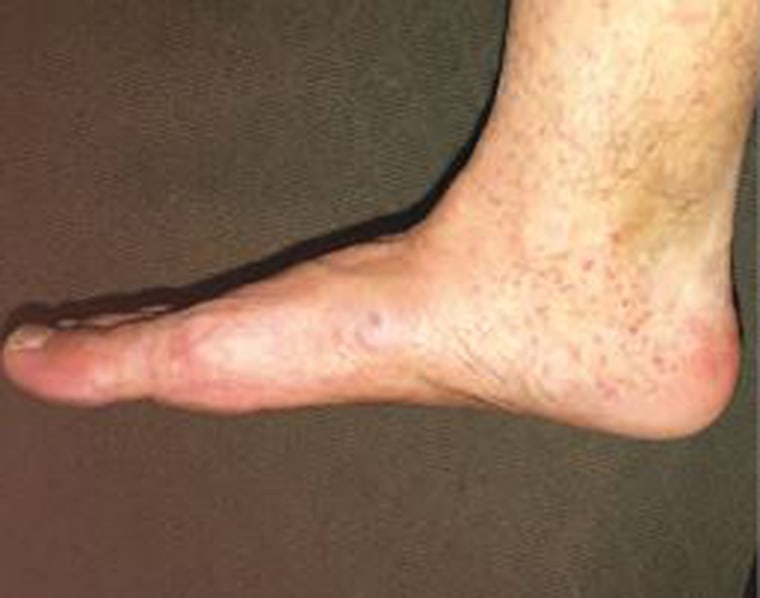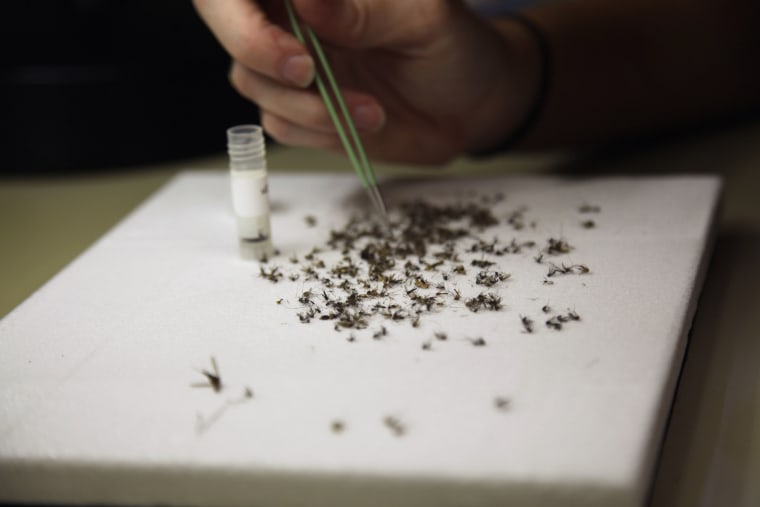The scene is not hard to imagine: an elderly man lays dying, and his loving family gather around, kissing his feverish face and forehead, embracing him, helping to change his sheets and clothing.
Doctors say they still cannot figure out how the dying Utah man gave the Zika virus to his son last July but said it may have been the hugs, the kisses, or contact with other bodily fluids. Their conclusion: the virus may, rarely, pass directly from patients to caregivers.
The Utah father was the first Zika patient to die in the continental U.S., and doctors were completely baffled when the man’s son also became infected.

The case was a medical mystery from the beginning. The father had an unusually severe infection and an astonishingly high amount of Zika virus in his blood. Utah doesn’t have the kind of mosquitoes that transmit Zika, and the two people involved did not have sexual contact.
Utah health officials have not identified the people involved in any way, but the Associated Press has reported the second patient was his son.
Related: How Did a Utah Man Infect Someone Else With Zika?
The only hint: The son did hug and kiss his dying father -– just as a dozen other family members did. And he helped care for the extremely sick patient.
“It remains unclear how patient A was infected; however patient A was known to have had close contact (i.e. kissing and hugging) with the index patient while the index patient's viral load was found to be very high,” Dr. Jeanmarie Mayer of the University of Utah Hospital and colleagues reported Tuesday.
"Family contacts should be aware that blood and body fluids of severely ill patients might be infectious."
“Although it is not certain that these types of close contact were the source of transmission, family contacts should be aware that blood and body fluids of severely ill patients might be infectious,” they wrote in a quick report published by the Centers for Disease Control and Prevention.
“It is essential that health care workers continue to apply standard precautions while caring for all patients, including those who might have Zika virus disease.”
Zika has spread at epidemic rates across much of Latin America and the Caribbean. The CDC has reported more than 18,000 travelers from affected regions have carried Zika to the 50 states and to U.S. territories. Mosquitoes in south Florida have spread the virus to more than 60 people and sexual transmission has also been reported.
While most people who get Zika don’t get severely ill, the virus causes devastating birth defects when a pregnant woman is affected. It can also cause neurological damage to adults –- including a paralyzing side-effect called Guillain-Barre syndrome.
Related: U.S. Reports Zika Virus Death in Puerto Rico
The virus can be found in blood, urine, semen, saliva, vaginal secretions and possibly tears.
The CDC says experts still don’t fully understand Zika, which until last year was considered a boring and obscure virus that occasionally infected people without any real consequences.
Then Brazil reported epidemics in several areas that were followed by a huge increase in birth defects in 2015. It’s not clear if the virus has somehow changed, or if doctors were simply missing the consequences of Zika infection because it had not infected large numbers of people all at once before.
The Utah team was not so mystified when the elderly patient died. He’s been to Puerto Rico, which is fighting an epidemic of Zika, and he was ill with other conditions. Even a common cold can help kill a sick and elderly patient.
But when his son also became infected, that caused concern.
Doctors have so far interviewed 19 relatives and tested blood or urine samples. They noted the man who died had 100,000 times the usual amounts of virus in his blood, which then could have spilled over into other bodily fluids.
“Thirteen family contacts reported hugging and kissing the index patient’s face. Five family contacts reported being present while the index patient’s stool, urine, or vomitus was being cleaned," Mayer’s team wrote.
“Thirteen family contacts reported hugging and kissing the index patient’s face."
"Patient A reported hugging and kissing the index patient, in a similar fashion to other family contacts, and assisted hospital personnel in holding the index patient while his stool was being cleaned, but did not have direct contact with stool.”
Only the son was infected.
The team also investigated 86 health care workers and asked for more details from 238 households. No one else has shown any sign of having been infected so far.

